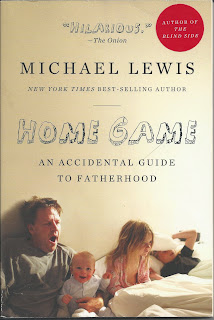Catching Up
 This one goes on the lifetime top 25 list. Others have sa
This one goes on the lifetime top 25 list. Others have said some of the same things, and sometimes others have been easier to understand, though that might be due to translation issues
(Ellul wrote in French!). But the fact that Ellul saw and said these things so thoroughly in post-WWII France gives him an edge others lack. This one's worthy of a lengthy review that I am not worthy of writing.
Read all the Ellul you can.

All of the Walker Percy novels I've read seem to have the same basic story. The main character is a man, usually young, who is functioning but slightly alienated from his society. He seems to sense that the reigning assumptions of his culture are insufficient and unsatisfactory, but his thinking is blurry enough that he can't get much farther than that. So he tries to think throughout most of the novel but can't. Fortunately, events unfold in such a way as to show him that, though the answers he seeks may never be disclosed to him, a healthy and satisfactory life is possible and worth pursuing. Another way to say it, at least the way I perceive it, is that he finally "grows up" or "gets with the program".
It's a good story, and Percy is a first-rate writer, so I'll read more. But I admit to some frustration with his characters that they can't see more clearly and get on with the business of living, building and creating. This may be what Percy intended; I'm not sure.

A light read but worthwhile if you have or spend much time with young children. And it won't take up too much of your time.

This was my first adventure with Hemingway. Maybe I should have started with one of his novels instead of this "experiment" of his of telling the true story of his African safari at the height of the Great Depression. (By 21st century political correctness standards it seems a little heartless to go on safari in the middle of the Great Depression!) Hemingway's sparse writing style didn't grab me the way it does others, though I am willing to recognize that may be in part because now, to a degree, everyone writes the way Hemingway did, or tries to, mostly because of his influence.
I read this one as part of a book club. We plan to discuss the book at a special zoo event. With an open bar that Hemingway would at least appreciate.

Fantastic. A great companion to Paul Johnson's Modern Times but with a spotlight on the battlefields of the Cold War. Fascinating history you won't know about unless you've read multiple histories on this period and topic. Stone is a terrific writer as well; you get his wit and opinions but, I think, in a way that doesn't unnecessarily offend those who may take issue with his assessments of, say, Jimmy Carter.
Probably the biggest takeaway for me is just how close much of the Cold War struggle was. At various stages, things could have turned out very differently, and much worse for humanity.

Gotta read some hard sci fi every once in a while. Benford can be a little slow at times and, from my perspective, get a little bogged down in the hardness of the science. But he thinks big. Very big. Here he takes us to the literal end of the universe and tells a good enough story that we forget how long a trip it's been.


0 Comments:
Post a Comment
<< Home